1. CBD assists in the protection and healing of your skin.

After marijuana was legalised for medical and recreational purposes, the cosmetics sector soon incorporated CBD-infused topicals. 36% of CBD users claim to the product’s ability to treat a variety of health issues.
Fortunately, CBD oil has the same remarkable effects on the inside of the body as it does on the outside. People have begun to embrace CBD oil skin treatments due to their anti-inflammatory and acne-fighting properties.
CBD, like the majority of skin treatments used to treat psoriasis and eczema, has anti-inflammatory qualities. CBD oil’s potent antioxidant effects aid in speeding up the skin’s healing process.
2. CBD may help to reduce your acne.

Acne is a prevalent skin disorder that affects around 9% of the population.
Acne occurs when dead skin cells, extra oil, or dirt clog the pores of the skin. When the skin pores get clogged, the bacteria found in hair follicles, Propionibacterium acnes, or P. acnes, multiply, resulting in acne.
CBD oil has been shown in studies to have anti-acne effects. Additionally, it has anti-inflammatory effects and aids in oil production inhibition.
CBD has an anti-acne impact by targeting the cells that cause acne. Unlike acne-specific products and prescription medications, CBD oil specifically targets the cells that cause acne in acne-prone skin types.
As a result, CBD aids in the healing process of the skin without causing it to become dry or irritated.
3. CBD can help in the treatment of Lupus.

Lupus treatments available today are far from effective or ideal. As a result, pharmaceutical companies have been attempting to invest in more effective forms of Lupus medicine.
Lupus, whether treated or not, generates an epidemic of agony in the victim.
However, with the present opioid addiction and overdose epidemic, both law enforcement and the medical community are under considerable strain. Fortunately, a multitude of research demonstrates that CBD oil efficiently relieves pain and inflammation, and Lupus entails significant inflammation.
A 2018 study published in Cellular Immunology discovered that CBD may affect T-cells, a kind of immune cell, following spinal cord injury. Lupus is believed to be caused by aberrant T-cell activity.
Additionally, pain can be caused by neuropathy or nerve damage, and research indicates that CBD oil can help decrease pain caused by HIV, diabetes, and other conditions.
4. CBD may be beneficial to your cardiovascular health.

Heart disease is a global health concern that is escalating. It is a top cause of death in the United States. While individuals have begun to prioritise a healthy lifestyle and food, CBD oil can also assist.
In 2017, JCJ Insight released a short study indicating that CBD oil may help reduce blood pressure changes induced by stress. Recent study has also connected CBD to further cardiovascular and circulatory system advantages, as well as the capacity to reduce high blood pressure.
Men were given stress tests that have been shown to raise blood pressure in a study. However, a single dosage of CBD caused them to have a little rise in blood pressure in response to stress testing.
Moreover, animal studies have indicated that CBD 46 may aid in the reduction of cell death and inflammation linked with heart disease because to its potent stress-relieving and antioxidant effects.
5. CBD promotes healthier cholesterol profiles
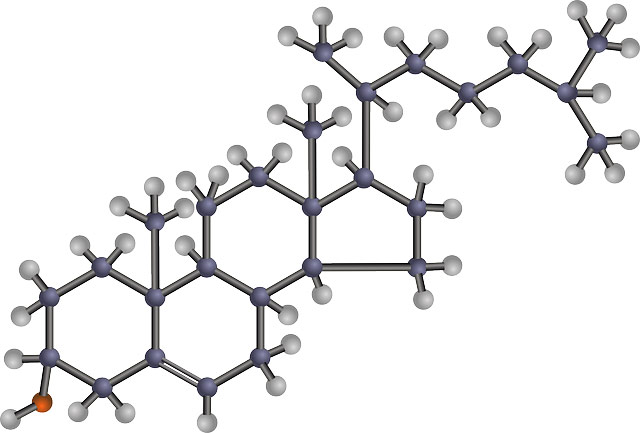
4,652 individuals were enrolled in a 2013 study to collect data on the influence of cannabis on their metabolic systems. They made comparisons between non-users and past and present users.
They discovered that current cannabis users had much greater amounts of healthy cholesterol, or high-density lipoprotein, in their blood (HDL-C).
More research examining of 700 members of Canada’s Inuit community revealed that frequent cannabis users had somewhat reduced levels of bad cholesterol, or LDL-C, and greater levels of good cholesterol, or HDL-C.
6. CBD reduces your cardiovascular disease risk.
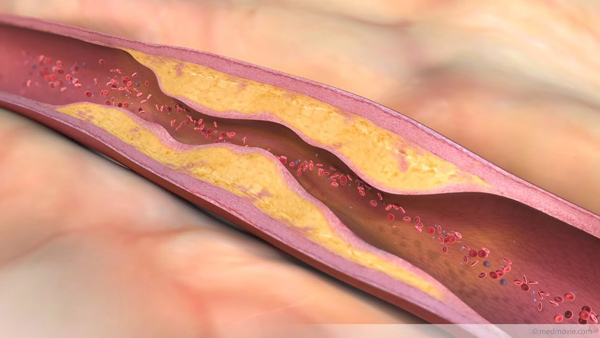
Atherosclerosis is a prevalent condition in developed Western nations, which can result in heart disease or stroke. Diet and lifestyle factors have been implicated in this chronic inflammatory disease.
It is characterised by the increasing accumulation of immune cells carrying oxidised LDL, commonly referred to as atherosclerotic plaques.
It is frequently a physical response to artery wall lining damage produced by pathogenic microorganisms, high blood pressure, or an excess of the amino acid homocysteine. Inflammatory chemicals have been shown to initiate a cycle that results in atherosclerotic lesions.
In a 2005 animal study, low-dose oral cannabis were found to help delay the development of atherosclerosis.
At some point, it was suggested that there was significant therapeutic promise for atherosclerosis. Another 2007 animal study demonstrated that CBD has cardioprotective properties in the event of a heart attack.
7. CBD guards against bone disease and fractures.

Old bone material is replaced by new bone material at a rate of around 10% each year during bone metabolism. Cannabinoids aid in this critical phase of long-term bone health maintenance.
CBD oil may help lower the chance of developing age-related bone disorders such as osteoarthritis and osteoporosis by inhibiting an enzyme that breaks down bone-building chemicals in the body.
The body does not regenerate bone and cartilage cells in the presence of certain disorders.
Thus, CBD oil aids in the acceleration of bone healing, which stimulates the creation of new bone cells and also reduces the chance of bone re-fracturing owing to the stronger fracture callus.
8. CBD decreases your risk of diabetes.
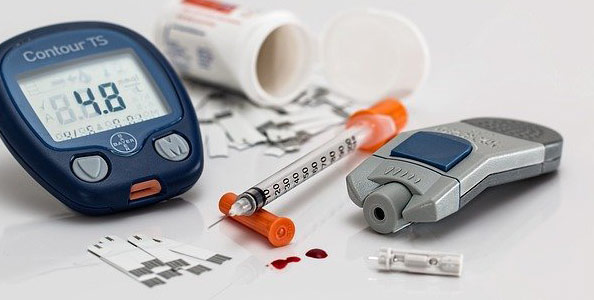
According to a recent study, approximately 4600 current cannabis users had fasting insulin levels that were up to 26% lower than individuals who did not use cannabis.
Additionally, they had greater levels of HDL cholesterol, which helps protect against diabetes, and 17% lower insulin resistance levels.
Subjects who formerly used cannabis but no longer do had comparable outcomes but with less connections. This implies that the protective effect of cannabis diminishes with time.
Because diabetes is an inflammatory disease, CBD’s anti-inflammatory effects may be beneficial. CBD has demonstrated promise in terms of regulating blood sugar levels in those with type 2 diabetes who do not use insulin and reducing insulin resistance.
Clinical Hemorheology and Microcirculation released data in 2016 indicating that CBD may be beneficial in reducing pancreatic inflammation.
Further research was presented in Lisbon, Portugal, the same year, suggesting that CBD may help prevent and postpone the development of Type 1 Diabetes.
Due to the fact that excess insulin stimulates the conversion of carbohydrates to stored fat, which results in weight gain and obesity, the interaction of insulin control and cannabis may one day aid in the prevention of obesity and type 2 diabetes.
9. CBD lowers your risk of obesity.

Numerous studies have demonstrated that those who frequently consume cannabis have a smaller waist circumference, a lower body mass index, and a lower risk of obesity. In a 2011 research published in the American Journal of Epidemiology, a survey of over 52000 individuals revealed that those who use cannabis had around a 1/3 reduced risk of obesity.
This seems to be despite the fact that cannabis users consume more calories per day as a result of THC’s stimulation of ghrelin. Ghrelin stimulates hunger and carbohydrate metabolism.
In 2006, a research on laboratory rats shown that CBD alone reduced the risk of diabetes. According to studies, CBD may aid in weight reduction by promoting the conversion of white fat to eight-reducing brown fat, which in turn enhances noatherogenesisrmal insulin production and sugar metabolism.
10. CBD could have neuroprotective properties.
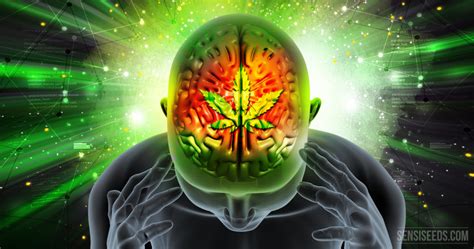
CBD possesses neuroprotective qualities that aid in preventing damage to the brain and nervous system, as well as promoting the growth and production of new neurons. Whether caused by traumatic impacts, ischemia, or hereditary and autoimmune disorders, brain injury can be permanent or transient.
CBD has been shown in studies to protect the brain from this damage and to aid in recovery. This shows that CBD may be beneficial for those who have had brain injuries, spinal cord illnesses, spinal cord injuries, epilepsy, or strokes.
These diseases are caused by neuron destruction, which CBD as a neuroprotectant can help to prevent. CBD was discovered to have anticonvulsant effects in a 2017 research published in the Journal of Epilepsy Research.
11. CBD can give you relief from nerve pain.
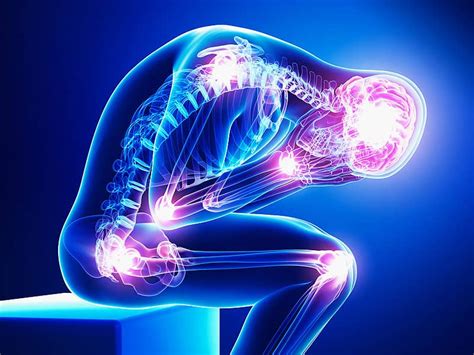
Nerve pain occurs when nerves are injured, inflamed, or malfunctioning. When a nerve is confused and injured, it sends jumbled messages to the brain and other body systems. Everyone’s response to pain is unique.
Neurotherapeutics released a study claiming that cannabis therapy might assist individuals with neuropathic pain. According to the Journal of Experimental Medicine, CBD inhibits neuropathic and inflammatory pain via the a3 glycine receptor.
However, the mechanism through which CBD relieves or modulates pain is unknown. CBD’s euphoric effects may serve to distract consumers from their discomfort and temporarily alleviate it.
12. CBD could act as an antioxidant.

CBD may act as an antioxidant and aid in the reduction of oxidative stress, a condition caused by an excess of free radicals in the body, making it harder for antioxidants to neutralise them. As a result of the increasing toxicity in our surroundings, this is a relatively new phenomenon.
Since 2001, the US government has recognised the antioxidant properties of vitamins C and E in the treatment of neurodegenerative diseases such as Parkinson’s disease, Alzheimer’s disease, dementia, and HIV, as these diseases are caused in part by free radicals and when the body’s cellular system breaks down.
CBD oil has been shown in two different studies to possess neuroprotective and antioxidant properties that aid in the reduction of brain damage caused by free radicals.
13. CBD may assist in relieving anxiety and depression.

According to the Anxiety and Depression Association of America, anxiety affects 18% and depression affects 6% of the population in the United States each year.
Generally, physicians advise patients who suffer from chronic anxiety to abstain using marijuana, as THC has been shown to induce paranoia or exacerbate anxiety.
CBD, on the other hand, can assist with both anxiety and depression provided the THC content is kept below 0.03 percent.
According to a 2015 review published in the journal Neurotherapeutics, CBD is a non-psychoactive compound that can help people cope with certain anxiety-related behavioural disorders such as generalised anxiety disorder, post-traumatic stress disorder (PTSD), obsessive-compulsive disorder (OCD), social anxiety disorder, panic disorder, and substance-abuse disorders.
However, no human study has been conducted; these results were reached from clinical trials, experimental research, and epidemiological studies.
CBD has also been shown to aid in the reduction of depression. CBD increases both serotonergic and glutamate cortical transmission, which are deficient in depressed individuals. Studies examining the use of CBD oil to treat depression have yielded encouraging findings.
14. CBD may assist in reducing fear-related reactions or effects.

It is thought that humans are born with two fears: fear of loud noises and fear of falling. All other anxieties we acquire, including the hundreds of phobias with which people suffer.
PTSD and phobias are both classified as fear-related disorders. According to a 2017 study released by the British Pharmacological Society, numerous research revealed that CBD may assist individuals suffering from PTSD and phobias lessen their conditioned fear response.
A further study discovered that CBD alleviates fear by interfering with memory reconsolidation, significantly reducing fear expression, and enhancing fear extinction.
As a result, CBD assists in reducing the impact of fear, regardless of whether you have PTSD, phobias, or other life-altering situations that result in trauma.
15. CBD may help to relieve stress.

Stress on a daily basis can jeopardise your emotional, social, and physical wellbeing.
Apart from personal testimonials from individuals who have successfully used CBD oil to alleviate stress and anxiety, a growing body of scientific data indicates that CBD may help lower stress.
A research conducted on 32 distinct rodents demonstrated that CBD had a beneficial impact on anxiety; just one mouse did not. Test subjects are placed in stressful circumstances and their anxiety and stress levels are assessed in these experiments.
CBD was found to be effective for reducing social anxiety and stress in a 2015 study.
It showed that CBD may be beneficial for illnesses such as seasonal affective disorder (SAD), panic disorder, post-traumatic stress disorder (PTSD), generalised anxiety disorder, and obsessive-compulsive disorder (OCD).
16. CBD may assist with insomnia.

In the United States of America, up to 60 million people suffer from insomnia or both acute and chronic sleep problems. Insomnia may have a significant influence on a person’s life, and it can be difficult to cure when it becomes chronic.
Prescription medications used to treat insomnia and sleep problems might put the patient at risk of developing an addiction and experiencing severe adverse effects.
CBD oil has been shown in studies to help lessen the symptoms and severity of sleeplessness for up to a month after therapy begins. The outcomes, however, varied with time.
17. CBD may be an effective tool against addiction.

According to a 2015 article published in the journal Substance Abuse Review, CBD may assist persons suffering from opioid addiction overcome withdrawal symptoms. They hypothesised that CBD could have a therapeutic impact on patients who are addicted to cocaine, opioids, or psychostimulants.
Additionally, they discovered that it may aid in the treatment of tobacco and cannabis addiction. There is evidence that CBD mitigates or blocks the psychoactive effects of THC.
According to another research published in Neurotherapeutics, CBD aids in the reduction of symptoms frequently linked with drug misuse, such as mood-related symptoms, anxiety, sleeplessness, and pain.
18. CBD reduces cigarette smoking habits.

According to research published in Addictive Behaviors, smokers who used vape pens or inhalers containing CBD decreased their cigarette use to less than normal without experiencing withdrawal symptoms such as nicotine craving.
In a week-long 2013 study, researchers evaluated the effectiveness of inhaled CBD on 24 cigarette smokers who want to stop.
Twelve of the people who got CBD reported a 40% drop in smoking, whereas the group who received a placebo reported no change in smoking.
Additionally, because the majority of smokers are motivated to smoke by stressful events, CBD oil can aid with anxiety and stress management.
19. CBD may assist with Opioid (drug) withdrawal and addiction.

The majority of opioids are used to treat pain and some types of mental disorders. CBD can help alleviate symptoms associated with chronic pain, anxiety, or mood problems, as well as the other concerns listed above.
As a result, CBD has been found to decrease opiate cravings and anxiety.
This is accomplished without increasing the likelihood of addiction, producing adverse consequences, or making the patient intoxicated. CBD will work as a natural, non-addictive, and non-psychoactive treatment for opiate withdrawal, reducing the likelihood of recurrence.
So a result, those who are already suffering from opioid addiction may benefit from CBD, as it will aid in the reduction of cravings and withdrawal symptoms associated with opiate usage.
20. CBD can help with mood and mood-related disorders.

CBD, according to a 2018 study, operates on several brain pathways, altering the function of critical mood-regulating neurotransmitters such as norepinephrine and serotonin.
The serotonin receptor 5HT1A, one of the five 5-HT receptors, is involved in the regulation of anxiety, hunger, sleep, and addiction.
CBD, like serotonin, stimulates this receptor, giving the same effect. As a result, CBD can act as a supplement to the brain’s serotonin synthesis, enhancing the soothing, mood-lifting benefits of serotonin, a feel-good neurotransmitter.
CBD also acts as a positive modulator of GABA, an inhibitory neurotransmitter that reduces the excitatory effects of cortisol and norepinephrine, resulting in a calming effect. CBD bolsters the brain’s expression and manufacture of GABA.
CBD benefits patients with depressed mood disorders because it substantially promotes the synthesis of mood-enhancing neurotransmitters such as serotonin.
21. CBD can assist those affected by Alzheimer’s disease.

As with its ability to alleviate inflammation, multiple sclerosis, chronic pain, and cognitive impairment, new research focusing on the use of CBD to treat Alzheimer’s discovered that CBD possesses effects that can successfully cure nervous system illnesses such as Alzheimer’s.
CBD’s efficiency in this regard is related to its capacity to protect nerve cells from deterioration and additional injury, as well as its antioxidant qualities.
New findings from the same research indicate that CBD can considerably minimise harmful effects and enhance cognitive capacity in Alzheimer’s patients.
While there is currently no compelling data to support this, CBD may hold the secret to assisting Alzheimer’s patients and perhaps slowing the disease’s progression.
22. CBD has antipsychotic effects.

Antipsychotic medications act by inhibiting the release of neurotransmitters such as acetylcholine, noradrenaline, serotonin, and dopamine in the brain.
Excess dopamine is associated with psychotic symptoms, and antipsychotic medicine assists in binding dopamine receptors, therefore reducing dopamine synthesis.
The study concludes that CBD may help restore changes to the brain regions linked in the development of psychosis. CBD enhances the patient’s cognition and reduces the negative impact of disease on their life quality and global functioning.
As a result, CBD has been shown to alleviate psychotic symptoms in individuals suffering from mental illnesses such as psychosis and schizophrenia.
Though CBD has not been proved to be effective for all mental illnesses, individuals suffering from various conditions have reported improvements with CBD.
23. CBD relieves Epilepsy.
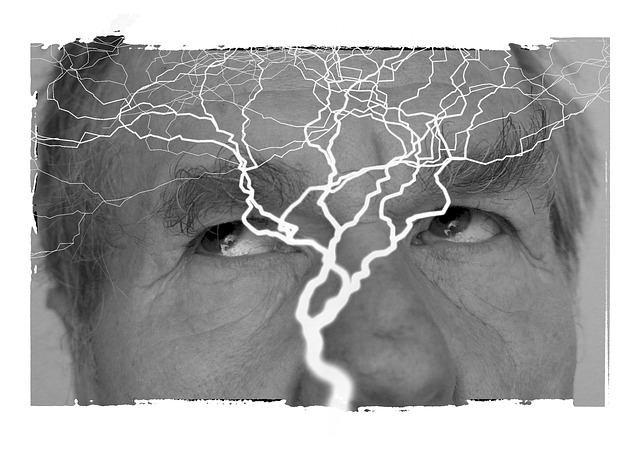
CBD possesses anti-seizure characteristics that make it effective in the treatment of drug-resistant forms of neurological disorders, such as epilepsy. According to research published in the New England Journal of Medicine, epilepsy medications reduce seizure frequency by 23% in comparison to placebo recipients.
Epidiolex, a refined version of CBD, was authorised by the US Food and Drug Administration (FDA) in June 2018 for the treatment of two severe and uncommon types of epilepsy in individuals over the age of two years: Dravet Syndrome (DS) and Gestaut Syndrome (LGS). These two types of seizures are not treatable with anti-seizure drugs.
Epidiolex has been shown to significantly decrease or eliminate seizures. The medication was authorised on June 25 for the treatment of seizures associated with various types of epilepsy. Additionally, researchers indicate that CBD may be used to treat epilepsy-related consequences such as neuronal damage, neurodegeneration, and mental disorders.
24. CBD could be used in the treatment of the HIV-1 Infection.

One of the reasons of HIV/AIDS is that the immune system is dysfunctional and is not functioning effectively. By weakening the immune system, HIV renders the body incapable of fighting the infection. CBD is frequently recommended for the treatment of HIV symptom due to its ability to boost the immune system’s performance.
In 2015, research discovered that patients who used CBD had more CD4 immune cells and lower viral loads that fight HIV than non-users. Another 2003 study found that CBD aided in the expansion of T cells.
T cells are critical components of the immune system because they assist in the destruction of infections. CBD has been shown in recent research to help prevent HIV from progressing to AIDS by suppressing the activity of plasmacytoid dendritic cells.
25. CBD has the potential to relieve pain.
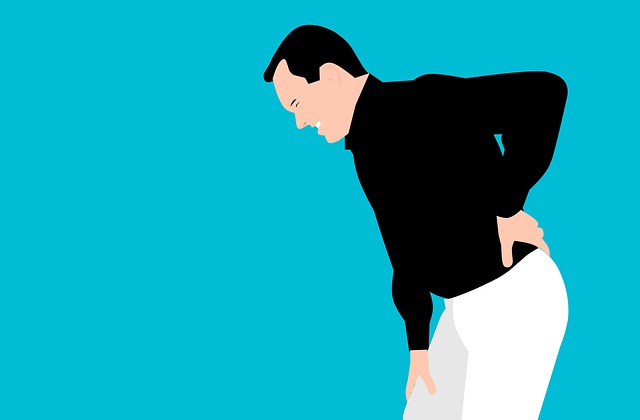
At some time in our life, whether acute or chronic, we must endure pain. According to the GSK Worldwide Pain Index 2017, 95% of the global population has experienced physical discomfort at some time, while 86 percent have experienced brain pain.
Anyone who has been affected with some sort of pain has expressed an interest in CBD in one manner or another. Cannabidiol is considered to provide a number of possible therapeutic advantages, the most notable of which is pain reduction.
CBD has been shown to interact with a wide variety of proteins in the central nervous system and body, including components of the endocannabinoid system (ECS), such as CB1 receptors in the central nervous system and brain, as well as CB2 cannabinoid receptors in the immune system and spleen.
While THC binds strongly to these receptors, CBD has the opposite effect. CBD reduces the absorption of anandamide, a naturally occurring cannabinoid molecule that controls pain and is associated with emotions of happiness and well-being.
When CBD enhances anandamide signalling, blood levels increase, assisting in the reduction of pain throughout the body.
CBD was shown to primarily target alpha-3 glycine receptors in order to alleviate inflammation and decrease chronic pain, both of which are linked with malfunctioning glycine receptors, which are important for pain processing in the spine.
According to a 2014 study published in the British Journal of Pharmacology, CBD’s analgesic effects are mediated via the TRPV1 receptor, implying that CBD might be utilised as a pharmaceutical option to treat chronic pain associated with specific illnesses.
Growing evidence indicates that CBD is a useful therapy for a wide rangevariety of pain-related illnesses. According to a 2016 animal research published in the European Journal of Pain, various doses of transdermal CBD gel (6.2 mg & 62.3 mg given to lab rats) were efficient at reducing arthritic pain and inflammation.
Numerous other researchers have come to the same findings. A 2017 study published in the Journal of Pain discovered a way to inhibit the development of nerve damage and joint pain in rats that had been given osteoarthritis.
26. CBD may help in the treatment of Fibromyalgia.

Sir William Gowers coined the term fibromyalgia. It is a syndrome characterised by wandering soft tissue pain that is exacerbated by tissue usage.
This illness is characterised by painful nodules known as trigger points that commonly occur in the neck and shoulder and are frequently severe enough to restrict physical activity. Additionally, it has a strong correlation with anxiety and sadness.
Women with fibromyalgia frequently suffer from headaches that interfere with sleep. This is the most often diagnosed disorder in American rheumatology offices.
In Italy, the authors noticed that, like migraines, this disease might be accompanied by secondary hyperalgesia (a lowered threshold to pain in primarily affected areas).
The authors suggested that CBD might be utilised to alleviate discomfort. Cannabinoids have been used to treat a variety of fibromyalgia symptoms. In an uncontrolled experiment, nine individuals received daily dosages ranging from 2.5 to 15 mg THC for three months.
The ethics committee, on the other hand, would not authorise the use of the placebo in this trial. As a result, all but four individuals withdrew from the trial early owing to adverse THC effects. Subjective pain, on the other hand, is reduced in those who finish the research.
A survey was conducted to compare the efficacy of FDA-approved pharmacological therapies for fibromyalgia against CBD. Prescription medications were ineffective in comparison to CBD.
27. Cannabidiol (CBD) for Irritable Bowel Syndrome.

IBS or Spastic Colon is a condition that is frequently characterised by GI (Gastrointestinal) pain, discomfort, spasms, and altered bowel movements that may be predominantly constipation or diarrhoea, or may alternate between the two states.
IBS attacks are strongly associated with anxiety, and they can be triggered by dietary infractions such as excessive eating or by specific foods. If the gastrointestinal insults are severe, such as antibiotics or food poisoning, the attacks may persist indefinitely.
The ECS (Endocannabinoid System) regulates GI secretion, propulsion, and inflammation in the human gut, which makes CBD a viable treatment option for IBS patients.
Numerous patient reviews have indicated the benefits of CBD in the treatment of IBS symptoms, and there is a wealth of anecdotal evidence on the internet.
There is a lack of clinical research demonstrating that CBD can aid in the relief of IBS symptoms. Modulation of the gut ECS, on the other hand, may help identify a useful therapeutic target for irritable bowel syndrome.
28. CBD may assist in the treatment of Multiple Sclerosis.
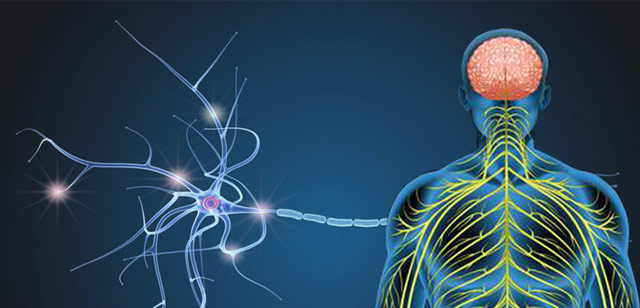
Multiple Sclerosis (MS) is a chronic, autoimmune disease in which the immune system consumes and attacks the protective coverings that surround the nerves in the human body. Unfortunately, Multiple Sclerosis has no cure.
In the case of multiple sclerosis, treatment is primarily focused on relieving pain and slowing disease progression. One of the most common symptoms is muscle spasms, which can be severe enough to cause constant pain in some people.
According to one study, short-term CBD use may help patients with multiple sclerosis experience less spasticity.
Numerous individuals have reported a decrease in symptoms when using cannabis. New data is now emerging from legal cannabis states which confirms this.
29. CBD can alleviate your inflammation.
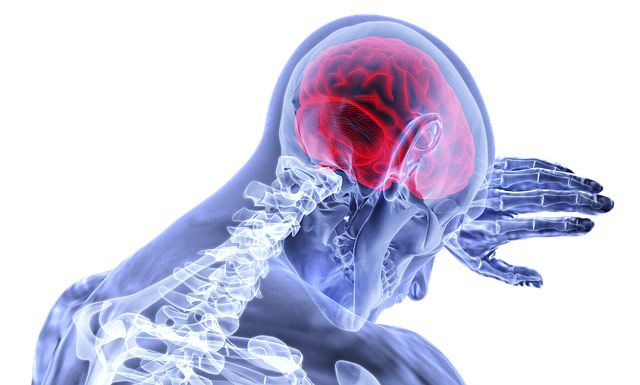
New research by the Journal of Experimental Medicine demonstrated that CBD can dramatically decrease chronic inflammation and discomfort in some rats and mice. According to the poll, the non-psychoactive chemicals in CBD may aid with inflammation relief.
Thus, CBD has an anti-inflammatory impact because it interacts with the Endocannabinoid system, which is found in the majority of organs throughout the body.
When Cannabinoids interact with the Endocannabinoid system, inflammation is decreased systemically. Given the role of inflammation in a wide variety of illnesses, CBD’s medicinal potential is astonishingly broad.
Information from the National Center for Biotechnology Information suggests that chronic inflammation contributes to the development of a wide variety of non-infectious illnesses, including cancer, heart disease, Type 2 Diabetes, Alzheimer’s disease, and even autoimmune diseases.
CBD has been shown in research to help decrease inflammation and relieve symptoms associated with several of these illnesses.
30. CBD can decrease your blood pressure.

In research to examine if CBD reduces blood pressure in people, nine healthy human volunteers were given 600 mg CBD in a randomised placebo-controlled crossover trial. Using a laser Doppler and finometer, the cardiovascular parameters were examined.
Subjects who had taken CBD had lowered blood pressure both before and after stress, increased heart rate, and decreased stroke volume.
In reaction to cold stress, individuals who took CBD had lowered blood pressure and an accelerated heart rate with reduced total peripheral resistance.
The findings revealed that a single dosage of CBD helps lower resting blood pressure as well as the blood pressure response to stress, especially cold stress.
Other research suggests that CBD does indeed have a role in protecting the cardiovascular system.
31. CBD can assist in the relief of cancer-related symptoms.

Along with the whole disease, cancer sufferers must deal with distressing symptoms such as despair, discomfort, and sleep loss.
Additionally, chemotherapy frequently leads in vomiting and nausea.
Fortunately, CBD has been shown to alleviate cancer-related symptoms.
Certain cancer patients have a difficult time responding to conventional pain medications such as opioids, and those who do may develop an addiction to certain of these medications.
Studies suggest that CBD is a more effective and non-addictive type of therapy.
According to this research, CBD is 30% more efficient in relieving pain than THC alone or conventional pharmaceuticals.
Vomiting and nausea are the most prevalent and feared side effects of chemotherapy. They can be so severe that they cause 25% – 50% of cancer patients to refuse or postpone treatment. CBD has been shown to considerably alleviate or manage certain symptoms.
In another trial, researchers gave cancer patients either a daily CBD spray or a placebo for five days following treatment. The CBD spray significantly reduced vomiting and nausea-related symptoms by 49%.
Additionally, there is accumulating evidence that CBD may help limit the spread of aggressive cancer cells in breast cancer and may potentially accelerate cancer cell death. Research on this subject is still in its infancy.
32. CBD may have anti-tumor properties.

Similarly to how cannabinoids assist reduce cancer-related symptoms, research has been done to see whether CBD can also help prevent tumors and other types of cancer from developing.
Research done in 2012 found that when laboratory animals were exposed to carcinogens and subsequently treated with CBD, they were less likely to acquire colon cancer.
Numerous studies have demonstrated that THC can aid in the reduction or prevention of cancers. CBD was shown in a 1996 study to help lower the occurrence of both hepatic adenoma and benign tumours using animal models.
During 2015, over 34,000 individuals’ medical records were examined in California. As a result, people who smoked cannabis rather than tobacco had a 45 percent lower risk of bladder cancer than the general population.
Ongoing research is being conducted to investigate how CBD may aid in the prevention and treatment of cancer.

